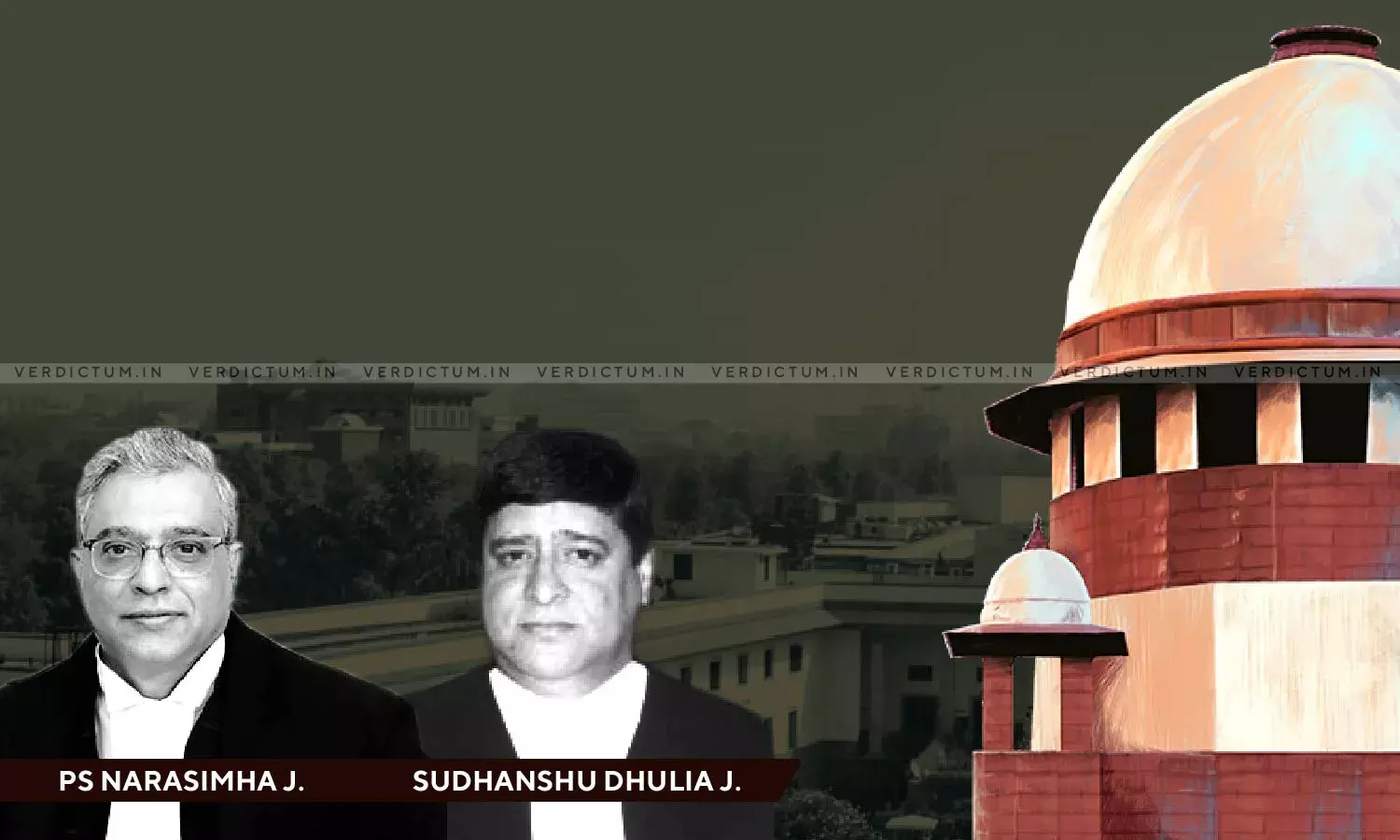Being Short Of Funds To Pay Court Fees Is Not Sufficient Reason To Condone Delay In Filing Appeal- Supreme Court

The Supreme Court has observed that being short of funds to pay the court fees is not a ground for condonation of delay in filing the appeal and that the appeal can be filed under Section 149 CPC. The Court held that the defect could have been removed by paying the deficit court fees within the time given by the Court.
The Bench of Justice PS Narasimha and Justice Sudhanshu Dhulia observed that “the High Court was right in dismissing Section 5 application of the appellant as insufficient funds could not have been a sufficient ground for condonation of delay, under the facts and circumstance of the case. It would have been entirely a different matter had the appellant filed an appeal in terms of Section 149 CPC and thereafter removed the defects by paying deficit court fees.”
In this case, a suit for specific performance was filed, which was dismissed by the Trial Court and later appeal was filed before the High Court which was dismissed on the grounds of delay of 254 days. The reason assigned by the appellant for the delay was that he was not having sufficient funds to pay the court fee.
Advocate Bhagabati Prasad Padhy appeared for the appellant and Advocate Ajay Marwah appeared for the respondent.
The Apex Court noted that even though the appellant was short of funds at the relevant point of time, nothing barred him from filing the appeal as there was provision under the law for filing a defective appeal and referred to Section 149 of the Civil Procedure Code, 1908.
Section 149 CPC was inserted by way of an amendment because Section 4 of the Court Fees Act was felt to be extremely rigorous at times. Section 149 CPC was held to act as an exception, or even a proviso to Section 4 of Court Fees Act 1870 by the Courts.
Section 149 provided that "Where the whole or any part of any fee prescribed for any document by the law for the time being in force relating to court fees has not been paid, the Court may, in its discretion, at any stage, allow the person, by whom such fee is payable, to pay the whole or part, as the case may be, of such court-fee; and upon such payment the document, in respect of which such fee is payable, shall have the same force and effect as if such fee had been paid in the first instance.”
Therefore, the Court observed that "An appeal has to be filed within the stipulated period, prescribed under the law. Belated appeals can only be condoned, when sufficient reason is shown before the court for the delay. The appellant who seeks condonation of delay therefore must explain the delay of each day. It is true that the courts should not be pedantic in their approach while condoning the delay, and explanation of each day’s delay should not be taken literally, but the fact remains that there must be a reasonable explanation for the delay."
Further, the Court even noted as to how prescribed period of limitation would be computed in case appeal was filed with deficient court fees in terms of Section 149 CPC and referred to decision of the Allahabad High Court in the case S. Wajid Ali v. Mt. Isar Bano Urf Isar Fatima & Ors AIR 1951 All 64, wherein it was held that “a court has to exercise its discretion for allowing a deficiency of court fees to be made good but once it was done, a document was to be deemed to have been presented and received on the date when it was originally filed, and not on the date when the defects were cured.”
Accordingly, the appeal was dismissed.
Cause Title- Ajay Dabra v. Pyare Ram & Ors.
Click here to read/download the Judgment

